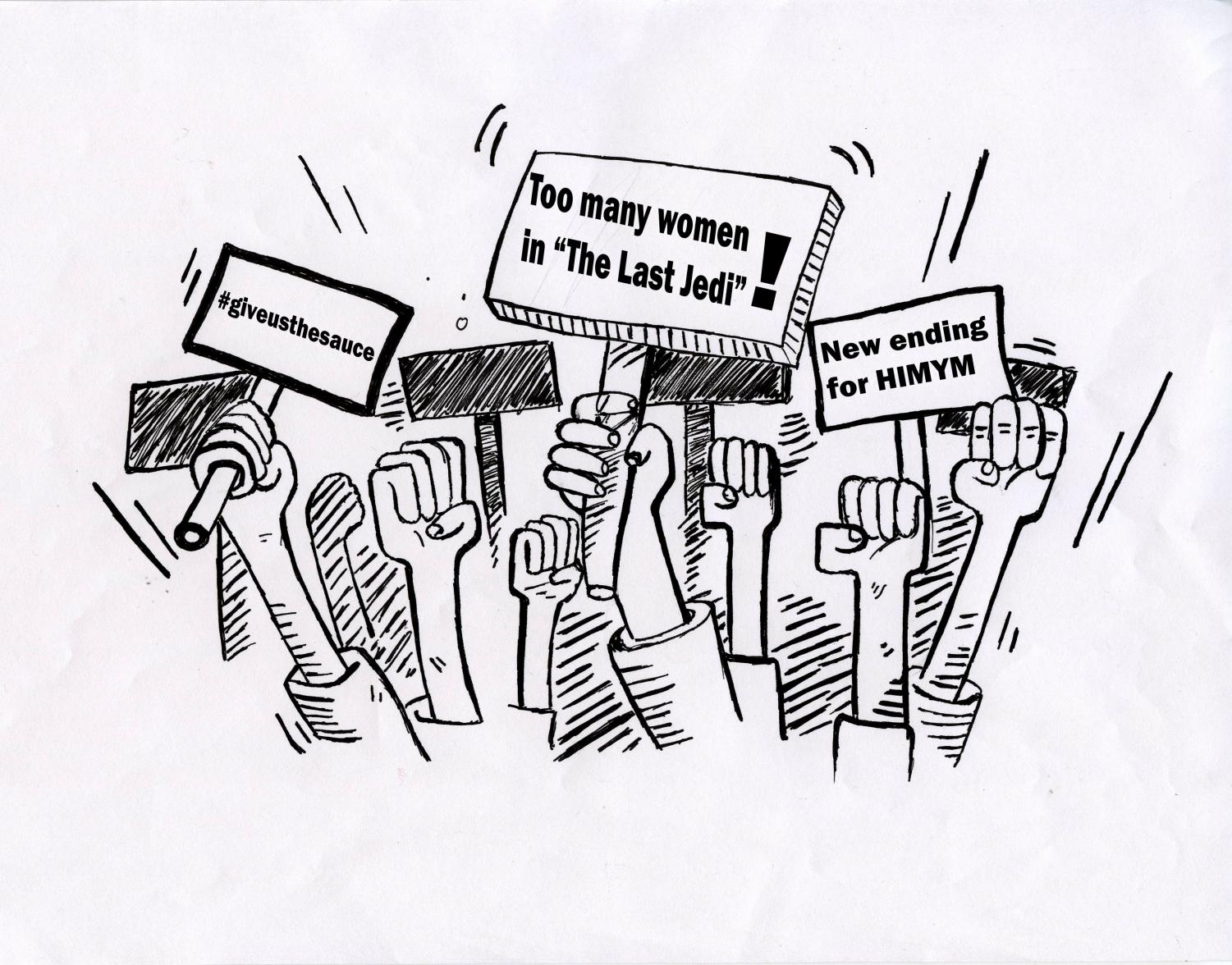When fandoms attack: The rise of the entitled
March 2, 2018
Everyone is a fan of something. Whether it be a movie, video game or sports team, everyone loves to be a part of something. With the development of the Internet and the sheer quantity of entertainment available, people usually have no problems finding someone else to share their favorite show with. Websites such as Reddit host many of these fandoms where fans can share pictures and videos from their favorite types of entertainment along with the occasional ridiculous theories about random characters or events in different franchises that could connect.
But, what happens when fandoms attack?
In October, McDonald’s began offering a limited time item called Szechuan sauce. Szechuan sauce is a famous sauce in the show Rick and Morty which has been airing on Cartoon Network’s Adult Swim since 2013. Hundreds lined up in front of McDonald’s in order to get their hands on the coveted sauce. However, McDonald’s neglected to tell eager fans that the sauce was only going to be sold for a limited time.
When fans found out, their happiness quickly turned to anger and violence. At one Los Angeles property, hundreds of patrons rioted inside a store, eventually requiring the presence of the Los Angeles Police Department. However, the events that transpired are just a symptom of a larger issue.
While actual rioting is not common, verbal attacks in fandoms occur frequently. One only has to look at the response to “Star Wars: The Last Jedi” to understand this. The film was highly anticipated, but upon release found itself part of an intense backlash. While many had legitimate criticisms of the movie, a small part of the fan base attacked the film and its director for “furthering social justice warrior agendas.” A social justice warrior is a term used to describe someone who expresses progressive values with a sometimes overbearing approach.
Fanboys argued that the film featured too many women and thus was too political. While most likely not the intetion of the filmmakers, these allegations also put a damper on an escapist series like “Star Wars.” Ironically, the fandom only has itself to blame for making its favorite movie so political.
Indeed, this sort of fan backlash is common when fans don’t get their way. At the conclusion of the show, “How I Met Your Mother,” fans were angry at how the show-runners decided to wrap things up. In a USA Today article released right after the show’s 2014 finale, the author attacks the show for failing to deliver on its promise to fans.
Fans believe that they are entitled to the ending they think something needs. When something becomes popular, who controls it? Fans would think that they should have some say in the creative process, and their anger at not receiving what they want can lead to the destruction of a franchise’s reputation.
“Star Wars,” for example, was a film that went against the grain of what fans wanted and they pushed back because of it. It’s quite easy to go to the comments of different reviews of the film and see hyperbolic comments about how the series is dead and how the director does not know what the fans want. It always comes back to what the fans want, but satisfying every fan is impossible.
The concept of fandom is one of unification, but it can also lead to entitlement. Of course, this isn’t to say fandoms are awful. While they do provide a sense of belonging to fans and bring joy to many, it may be time to reassess how good these fandoms are in relation to the quality of the content and the direction of these shows and movies.
